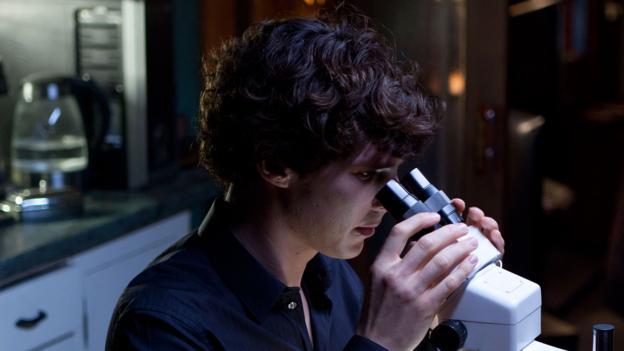What Sherlock Holmes taught us about the mind

Soon after Andrew Lees embarked on his medical career at University College Hospital London, one of his superiors gave him a rather strange reading list. Rather than the usual fusty anatomical volumes, it included The Complete Sherlock Holmes.
What on earth could the fictional detective teach an aspiring neurologist? As it turns out, a good deal, as Lees recently wrote in a paper in Brain journal. Whatever your expertise, the insights provide a welcome lesson in the art of rational thinking.
As Lees points out, Holmes’ creator Arthur Conan Doyle was a physician himself, and there is evidence that he modelled the character of Holmes on one of the leading doctors of the day, Joseph Bell of the Royal Edinburgh Infirmary. “I thought I would try my hand at writing a story where the hero would treat crime as Dr Bell treated disease,” Doyle recalled in a 1927 interview.
Notice the details
But Lees suspects that as his stories developed, Conan Doyle may have also drawn some inspiration from other doctors, such as William Gowers, who wrote the Bible of Neurology. (Conan Doyle himself had specialised in neurodegenerative disease as a doctoral student, and he and Gowers had a mutual friend in the author Rudyard Kipling.)
Gowers often taught his students to begin their diagnosis from the moment a patient walked through the door, as seen in a record of one of his clinical demonstrations, later published as A Clinical Lecture on Silver and Syphilis: “Did you notice him as he came into the room? If you did not then you should have done so. One of the habits to be acquired and never omitted is to observe a patient as he enters the room; to note his aspect and his gait. If you did so, you would have seen that he seemed lame, and you may have been struck by that which must strike you now – an unusual tint of his face.”
It’s remarkably similar to Holmes’ habit of profiling each person he meets based on the scantest of clues, as reimagined in the BBC’s remake of the classic stories:
In particular, it was the importance of the seemingly inconsequential that seems to inspire both men. “It has long been an axiom of mine that the little things are infinitely the most important,” Conan Doyle wrote in A Case of Identity.
Both Gowers and Holmes also warned against letting your preconceptions fog your judgement. For both men, cool, unprejudiced observation was the order of the day. It is for this reason that Holmes chastises Watson in The Scandal of Bohemia: “You see, but you do not observe. The distinction is clear.” Or in the words of Gowers: “The method you should adopt is this: Whenever you find yourself in the presence of a case that is not familiar to you in all its detail forget for a time all your types and all your names. Deal with the case as one that has never been seen before, and work it out as a new problem sui generis, to be investigated as such.”

(Credit: BBC/Hartswood Films)
The Sherlock Holmes stories have become a valuable touchstone for people hoping to expand their minds with cool, logical deduction (Credit: BBC/Hartswood Films)
Occasionally, Gowers’ real-life powers’ of observation appear to have rivalled Holmes’ fictional hero. Consider his study of a man initially misdiagnosed with a psychological disturbance similar to hysteria:
“I looked casually at the bed-card and at once my eye was caught by the record of his occupation ‘Painter’. I looked from the bed-card to his gums, and there I saw written in equally distinct characters the record of the effect of his occupation – in a conspicuous lead-line.” By simply using his eyes to see what others had missed, Gowers correctly inferred that the man was being poisoned by his pigments.
There are many other examples: how both men “reasoned backwards”, for instance, dissecting all the possible paths that may have led to a particular disease (in Gowers’ case) or murder (in Holmes’). This line of approach is perhaps best summarised as Holmes’ most famous aphorism: “When you have eliminated the impossible, whatever remains, however improbable, must be the truth.”
(Credit: Alamy)
Even today, Sherlock Holmes is an inspiration for many rational thinkers who wish to escape the "curse of expertise" (Credit: Alamy)
But perhaps the most important lesson to be learned, from both Gowers and Holmes, is the value of recognising your errors.
“Gentlemen – It is always pleasant to be right, but it is generally a much more useful thing to be wrong,” wrote Gowers, while Holmes admits: “I confess that I have been blind as a mole, but it is better to learn wisdom late than never to learn it at all.”
This humility is key in beating the ‘curse of expertise’ that afflicts so many talented and intelligent people. Over the last few years, the cognitive neuroscientist Itiel Dror of University College London has documented many instances in which apparent experts in both medicine and forensic science have allowed their own biases to cloud their judgements – sometimes even in life or death situations.
Whatever the exact nature of Gowers’ influence on Conan Doyle, Holmes’ lessons today offer a larger lesson in the power of logical thought. Even the most advanced technology can never replace the powers of simple observation and rational deduction. As Lees says, the hospital “is still a crime scene” – and we still need the finest minds to solve those mysteries. As he found all those years ago, if you want to train your powers of deduction, you could do a lot worse than read (or reread) Sherlock Holmes.
Политика конфиденциальности | Правила пользования сайтом








